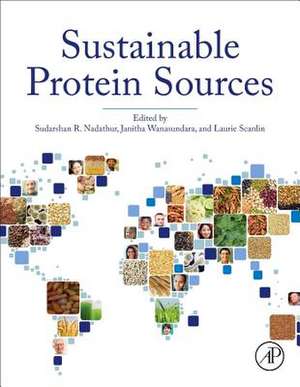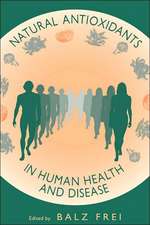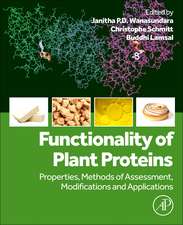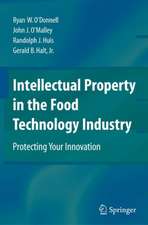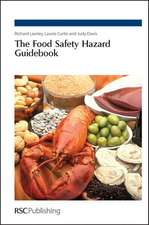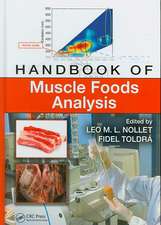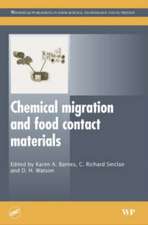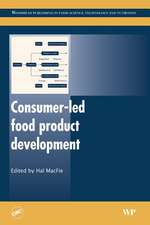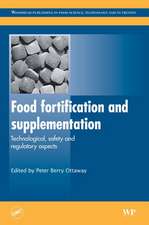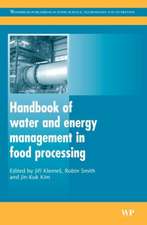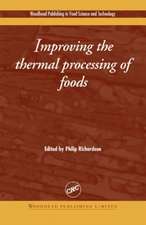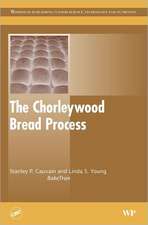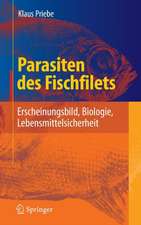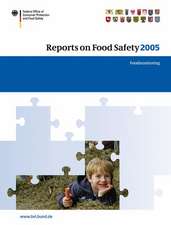Sustainable Protein Sources
Editat de Sudarshan Nadathur, Janitha P.D. Wanasundara, Laurie Scanlinen Limba Engleză Hardback – 25 oct 2016
Sustainable Protein Sources presents the various benefits of plant and alternative protein consumption, including those that benefit the environment, population, and consumer trends. The book presents chapter-by-chapter coverage of protein from various sources, including cereals and legumes, oilseeds, pseudocereals, fungi, algae, and insects. It assesses the nutrition, uses, functions, benefits, and challenges of each of these proteins. The book also explores opportunities to improve utilization and addresses everything from ways in which to increase consumer acceptability, to methods of improving the taste of products containing these proteins, to the ways in which policies can affect the use of plant-derived proteins. In addition, the book delves into food security and political issues which affect the type of crops that are cultivated and the sources of food proteins. The book concludes with required consumer choices such as dietary changes and future research ideas that necessitate vigorous debate for a sustainable planet.
- Introduces the need to shift current animal-derived protein sources to those that are more plant-based
- Presents a valuable compendium on plant and alternate protein sources covering land, water, and energy uses for each type of protein source
- Discusses nutritive values of each protein source and compares each alternate protein to more complete proteins
- Provides an overview of production, including processing, protein isolation, use cases, and functionality
- Presents solutions to challenges, along with taste modulation
- Focuses on non-animal derived proteins
- Identifies paths and choices that require consumer and policymaker debate and action
| Toate formatele și edițiile | Preț | Express |
|---|---|---|
| Paperback (1) | 1194.72 lei 5-7 săpt. | |
| ELSEVIER SCIENCE – 21 noi 2023 | 1194.72 lei 5-7 săpt. | |
| Hardback (1) | 703.89 lei 5-7 săpt. | |
| ELSEVIER SCIENCE – 25 oct 2016 | 703.89 lei 5-7 săpt. |
Preț: 703.89 lei
Preț vechi: 850.31 lei
-17% Nou
Puncte Express: 1056
Preț estimativ în valută:
134.68€ • 140.64$ • 111.22£
134.68€ • 140.64$ • 111.22£
Carte tipărită la comandă
Livrare economică 08-22 aprilie
Preluare comenzi: 021 569.72.76
Specificații
ISBN-13: 9780128027783
ISBN-10: 0128027789
Pagini: 456
Dimensiuni: 216 x 276 x 42 mm
Greutate: 1.33 kg
Editura: ELSEVIER SCIENCE
ISBN-10: 0128027789
Pagini: 456
Dimensiuni: 216 x 276 x 42 mm
Greutate: 1.33 kg
Editura: ELSEVIER SCIENCE
Cuprins
1. Proteins in the Diet: Challenges in Feeding the Global Population
PART 1: PLANT-DERIVED PROTEINS
2. Soy Protein: Impacts, Production and Applications
3. Rice Protein and Rice Protein Products
4. Wheat Proteins
5. Proteins from Sorghum and Millets
6. Oat Protein
7. Hemp Seed (Cannabis sativa L.) Proteins
8. Protein from Flaxseed (Linum usitatissimum)
9. Proteins from Pulses: Peas and Beans
10. Lupin: An Important Protein and Nutrient Source
11. Proteins from Lentils
12. Underutilized Proten Resources from African Legumes
13. Peanut Products as a Protein Source
14. Quinoa as a Sustainable Protein Source
15. Amaranth: Food and Nutraceutical Purposes
16. Amaranth: Sustainability, Processing and Food Uses
17. Chia: The New Golden Seed for the 21st Century
PART 2: UPCOMING SOURCES OF PROTEINS
18. Proteins from Canola/Rapeseed: Current Status
19. MycoproteinL A Healthy New Protein with a Low Environmental Impact
20. Heterotrophic Microalgae: A Scalabale and Sustainable Protein Source
21. Edible Insects: A Neglected and Promising Protein Source
PART 3: CONSUMERS AND SUSTAINABILITY
22. Meat Reduction and Plant-Based Food: Replacement of Meat--Nutritional, Health, and Social Aspects
23. Flavors, Taste Preferences and the Consumer: Taste Modulation and Influencing Change in Dietary Patterns for a Sustainable Earth
24. Food Security and Policy
25. Feeding the Globe Nutritious Food in 2050: Obligations and Ethical Choices
PART 1: PLANT-DERIVED PROTEINS
2. Soy Protein: Impacts, Production and Applications
3. Rice Protein and Rice Protein Products
4. Wheat Proteins
5. Proteins from Sorghum and Millets
6. Oat Protein
7. Hemp Seed (Cannabis sativa L.) Proteins
8. Protein from Flaxseed (Linum usitatissimum)
9. Proteins from Pulses: Peas and Beans
10. Lupin: An Important Protein and Nutrient Source
11. Proteins from Lentils
12. Underutilized Proten Resources from African Legumes
13. Peanut Products as a Protein Source
14. Quinoa as a Sustainable Protein Source
15. Amaranth: Food and Nutraceutical Purposes
16. Amaranth: Sustainability, Processing and Food Uses
17. Chia: The New Golden Seed for the 21st Century
PART 2: UPCOMING SOURCES OF PROTEINS
18. Proteins from Canola/Rapeseed: Current Status
19. MycoproteinL A Healthy New Protein with a Low Environmental Impact
20. Heterotrophic Microalgae: A Scalabale and Sustainable Protein Source
21. Edible Insects: A Neglected and Promising Protein Source
PART 3: CONSUMERS AND SUSTAINABILITY
22. Meat Reduction and Plant-Based Food: Replacement of Meat--Nutritional, Health, and Social Aspects
23. Flavors, Taste Preferences and the Consumer: Taste Modulation and Influencing Change in Dietary Patterns for a Sustainable Earth
24. Food Security and Policy
25. Feeding the Globe Nutritious Food in 2050: Obligations and Ethical Choices
